Navigating environmental regulations in the HVAC industry is a critical task that requires careful attention to detail and a deep understanding of the legal landscape. At MDL Solutions, we recognize the importance of adhering to these regulations to protect our environment while ensuring optimal performance of HVAC systems. Environmental HVAC practices are essential not only for regulatory compliance but also for promoting sustainability and reducing the overall carbon footprint of HVAC operations.
The Growing Importance of Environmental Compliance
Environmental compliance in the HVAC industry has become increasingly important as the world grapples with the realities of climate change and environmental degradation. Environmental HVAC practices are now a priority, with regulations designed to minimize the impact of heating, ventilation, and air conditioning systems on the environment. These regulations address a wide range of issues, including the use of environmentally harmful refrigerants, energy consumption, and emissions. As public awareness and concern for the environment grow, so does the pressure on the HVAC industry to adopt greener practices and technologies.
Key Environmental Regulations Impacting HVAC
One of the most significant areas of focus in environmental HVAC regulations is refrigerant management. The phase-out of chlorofluorocarbons (CFCs) and hydrochlorofluorocarbons (HCFCs) is a major component of these regulations due to their ozone-depleting properties and high global warming potential (GWP). HVAC professionals must transition to more environmentally friendly refrigerants, such as hydrofluoroolefins (HFOs), to comply with these regulations. This shift not only helps protect the ozone layer but also reduces the overall environmental impact of HVAC systems.
Energy efficiency standards are another crucial aspect of environmental HVAC regulations. Legislation like the Energy Policy Act, along with standards set by the Department of Energy (DOE) and the Environmental Protection Agency (EPA), aims to enhance the energy efficiency of HVAC systems. Compliance with these standards is essential for reducing energy consumption and greenhouse gas emissions. By improving energy efficiency, HVAC systems can operate more sustainably, lowering operational costs and contributing to environmental preservation.
Emission controls are also a significant focus of environmental HVAC regulations. These controls target the reduction of harmful emissions from HVAC systems, including carbon dioxide (CO2), nitrogen oxides (NOx), and particulate matter. Implementing advanced technologies and adhering to regular maintenance schedules are critical to meeting these emission standards. Environmental HVAC practices in this area help mitigate the impact of HVAC systems on air quality and public health.
Strategies for Compliance and Sustainability
At MDL Solutions, we advocate for proactive strategies to ensure compliance with environmental HVAC regulations and promote sustainability. One of the key strategies is regular training and certification for HVAC professionals. Staying updated with the latest regulations and obtaining relevant certifications ensure that our team is well-equipped to handle compliance issues effectively. This ongoing education is vital for maintaining high standards of environmental HVAC practices.
Adopting innovative technologies is another essential strategy for achieving compliance and sustainability in the HVAC industry. Investing in advanced HVAC technologies, such as smart thermostats, energy-efficient compressors, and eco-friendly refrigerants, can significantly reduce the environmental impact of HVAC systems. These technologies not only enhance the performance and efficiency of HVAC systems but also align with environmental HVAC regulations, promoting a greener and more sustainable future.
Preventive maintenance is a crucial aspect of environmental HVAC practices. Regular maintenance of HVAC systems can prevent refrigerant leaks, improve energy efficiency, and prolong the lifespan of equipment. This proactive approach helps reduce the overall environmental footprint of HVAC operations and ensures compliance with environmental regulations. At MDL Solutions, we emphasize the importance of preventive maintenance as part of our commitment to sustainable HVAC solutions.
Partner with MDL Solutions for Expert Guidance
Navigating the maze of environmental regulations in the HVAC industry can be daunting, but you don’t have to do it alone. At MDL Solutions, we specialize in providing tailored HVAC solutions that meet regulatory requirements and promote sustainability. Our expertise in environmental HVAC practices ensures that your systems comply with the latest regulations while optimizing performance and efficiency. Contact us today to learn how we can help you achieve compliance and contribute to a greener future.

